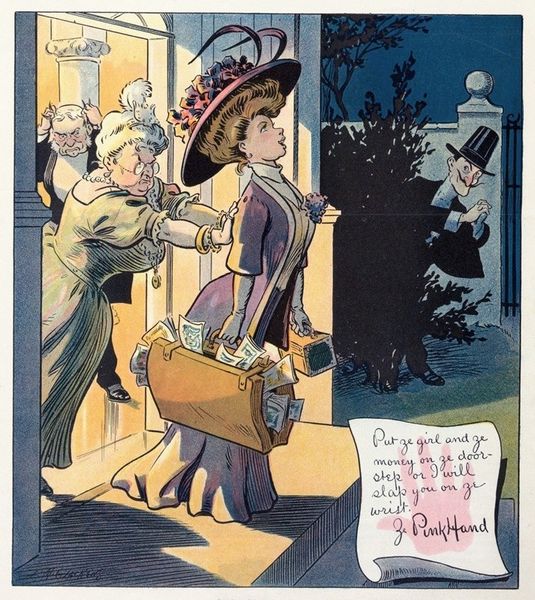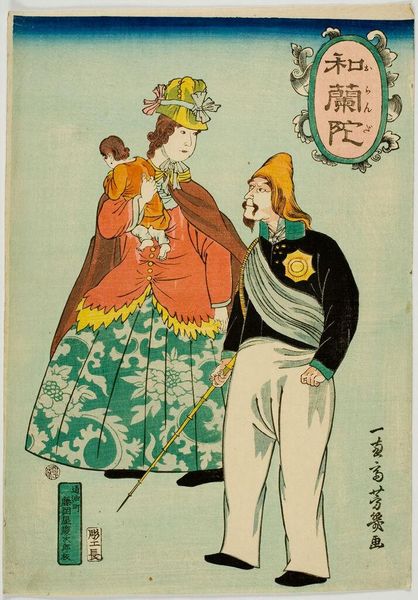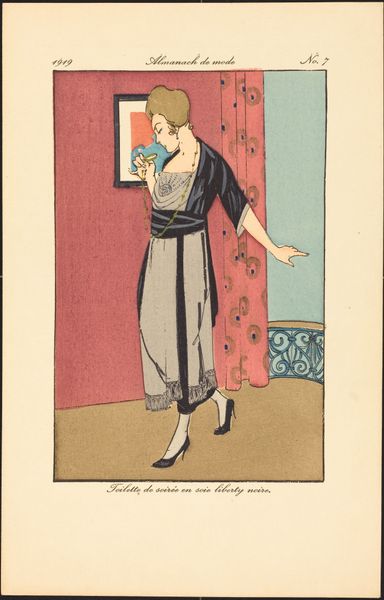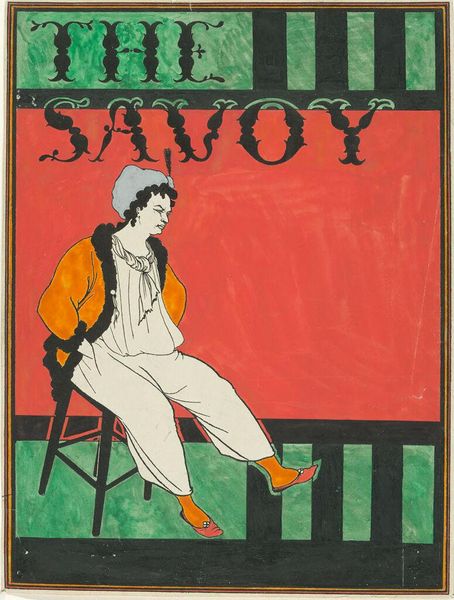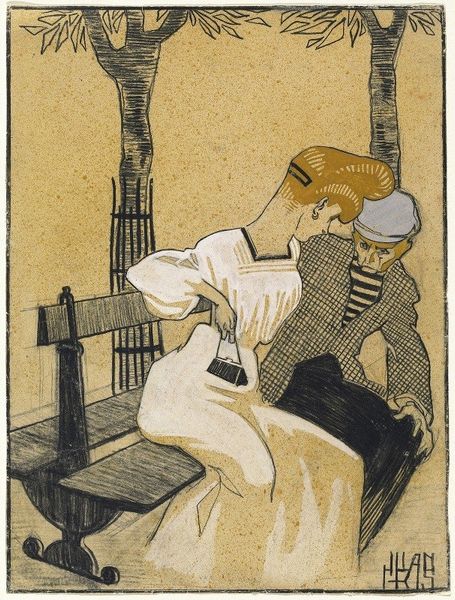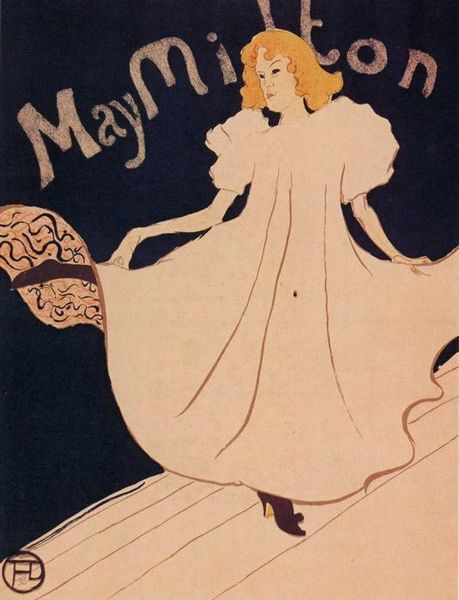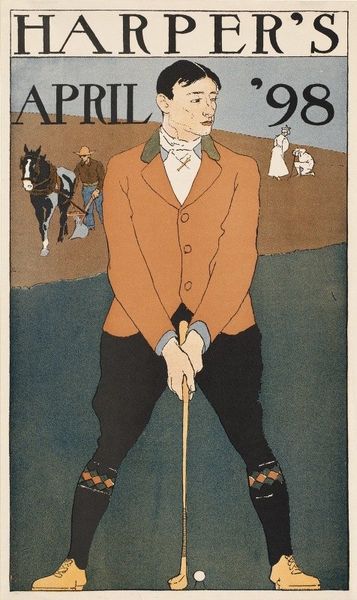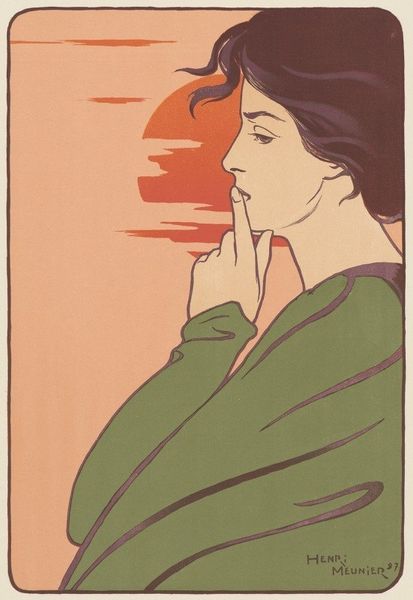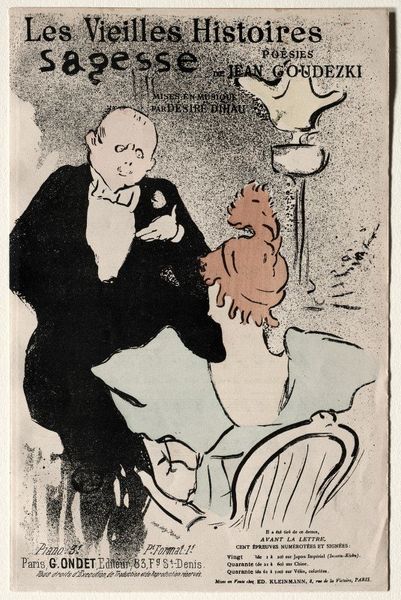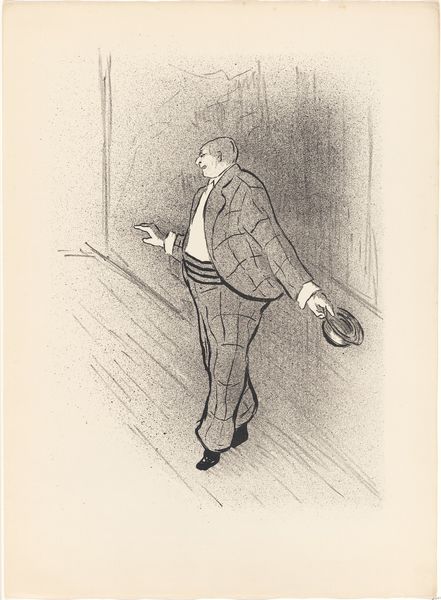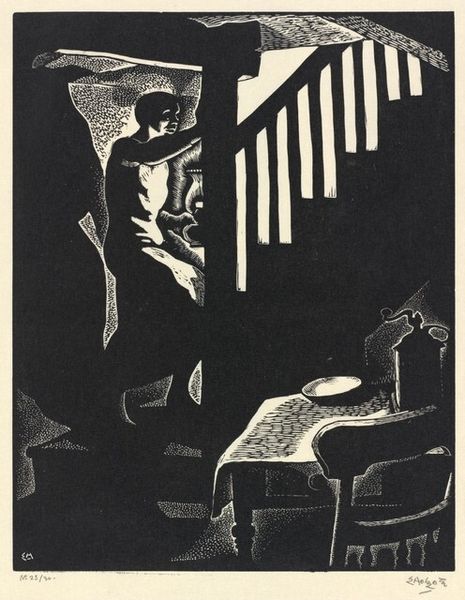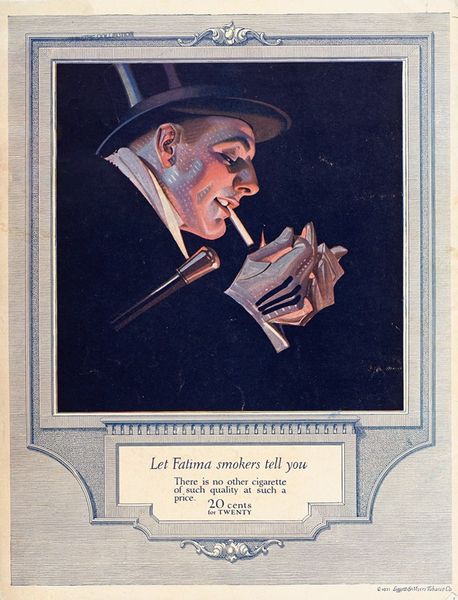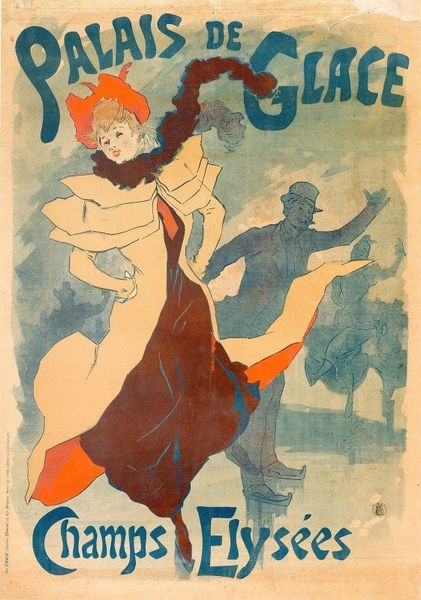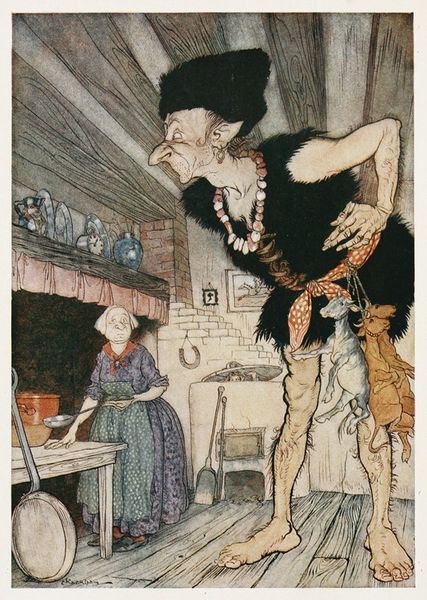
poster
#
art-nouveau
#
popart
#
caricature
#
pop art
#
figuration
#
poster
Copyright: Public Domain: Artvee
Curator: Here we have "The Martian", a poster created in 1897 by Edward Penfield. What strikes you first about this image? Editor: The palette, definitely. Muted browns and blues give it a very somber, almost melancholic feel. It reminds me of late 19th-century anxieties around industrialization and humanity's place in a rapidly changing world. Is the figure welcoming something new or pleading for something lost? Curator: That tension is definitely present. Penfield's posters often played with societal currents, using figuration to comment on emerging trends. Considering its Art Nouveau styling and date, the figure almost seems like an avatar, standing at the precipice of the 20th century and all its uncertainty. What is 'the Martian' even supposed to represent here? Editor: Perhaps "Martian" is metaphorical. Could this be about the perceived alienation of marginalized groups, someone looking to be understood or find belonging? The pose of supplication feels especially powerful in that context. His yearning gaze is directed upwards, towards something perhaps unattainable. Curator: Exactly. Contextualizing this poster involves exploring the book it advertises. Understanding the book's narrative about an outsider perspective might help unpack the complex symbolism here. Furthermore, look at the publisher’s name. The "Harper & Brothers," are significant as purveyors of culture, so in what ways might this influence its messaging? Editor: Good point. A publishing house’s legacy will inherently shape public reception. What's also compelling to me is the simplification of form, almost leaning toward caricature. It's as if the figure is representing a 'type' rather than an individual, amplifying those universal themes of alienation and the search for connection. Curator: So ultimately, while the term "Martian" initially suggests the foreign, this work makes it personal. Perhaps it dares us to explore our own feelings of isolation, to reconsider our connections to the world and to one another in a changing world. Editor: Indeed. It’s a reminder that even perceived otherness may be merely a reflection of our own unexamined selves. This old advertisement opens up fascinating pathways into thinking about the politics of inclusion today.
Comments
No comments
Be the first to comment and join the conversation on the ultimate creative platform.
